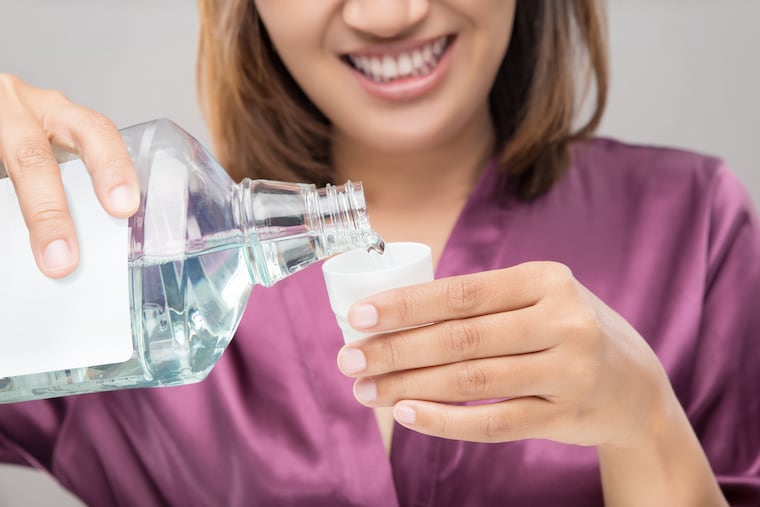Penn State study says mouthwash can kill coronavirus — in lab dishes. Human trials are next.
Mouthwashes can help prevent and treat gum disease caused by bacteria. Could swishing kill the coronavirus?

Simple solutions to complicated problems have huge appeal, so it’s no wonder that squelching the coronavirus with mouthwash is being studied.
Penn State College of Medicine is the latest to show that mouthwashes, nasal rinses, and even very diluted baby shampoo can kill coronaviruses by rupturing the microbes' fatty shells.
But the experiments were in lab dishes, not people. And the Penn State scientists used cousins of the pandemic coronavirus, because the real thing can only be studied in labs with extra biosecurity.
“A German group recently corroborated our results” with their own lab experiments, said Craig Meyers, the Penn State professor of microbiology, immunology, obstetrics and gynecology who led the study, published this week in the Journal of Medical Virology. “They used SARS-2," the pandemic coronavirus.
In theory, using an antiseptic rinse to reduce the viral load in an infected person’s mouth or nose could also reduce the spread of the virus. The mouth and nose are where the coronavirus gets into the body and later gets out in a sneeze, cough, or even through talking and breathing.
Around the world, at least half a dozen studies in humans are underway to test that theory. Penn State is now seeking funding and approval to do its own clinical trial.
» READ MORE: Temple study helps predict which COVID-19 patients develop dangerous ‘cytokine storm’
“We’re not putting this out as a replacement for masks and social distancing, but as another potential layer of protection,” Meyers said.
There are lots of obstacles, however.
“If you have virus in your lungs, you just cough it back up into your mouth," said Thomas E. Rams, director of the oral microbiology testing lab at Temple University’s Kornberg School of Dentistry. “You’d have to be rinsing on such a frequent basis. And what I fear is that some people would think they don’t need masks because they gargled with Listerine.”
In an infected person, rinses would not kill virus that has invaded cells, where it replicates. Only the immune system can destroy virus within cells.
And even if rinsing reduced the viral load in oral and nasal cavities, it would only be for a temporary, unknown amount of time.
“We have an educated guess because we know how long the virus takes to replicate in culture — 6 to 12 hours,'” Meyers said.
The one place where mouthwashes are already being used against the coronavirus — even though evidence is lacking — is in dentistry, where workers are constantly exposed to germs in patients' saliva.
“There is no published evidence regarding the clinical effectiveness of pre-procedural mouth rinses to reduce SARS-CoV-2 viral loads or to prevent transmission,” says the U.S. Centers for Disease Control and Prevention.
But, the public health agency adds, certain mouthwashes “may reduce the level of oral microorganisms in aerosols and spatter generated during dental procedures.”